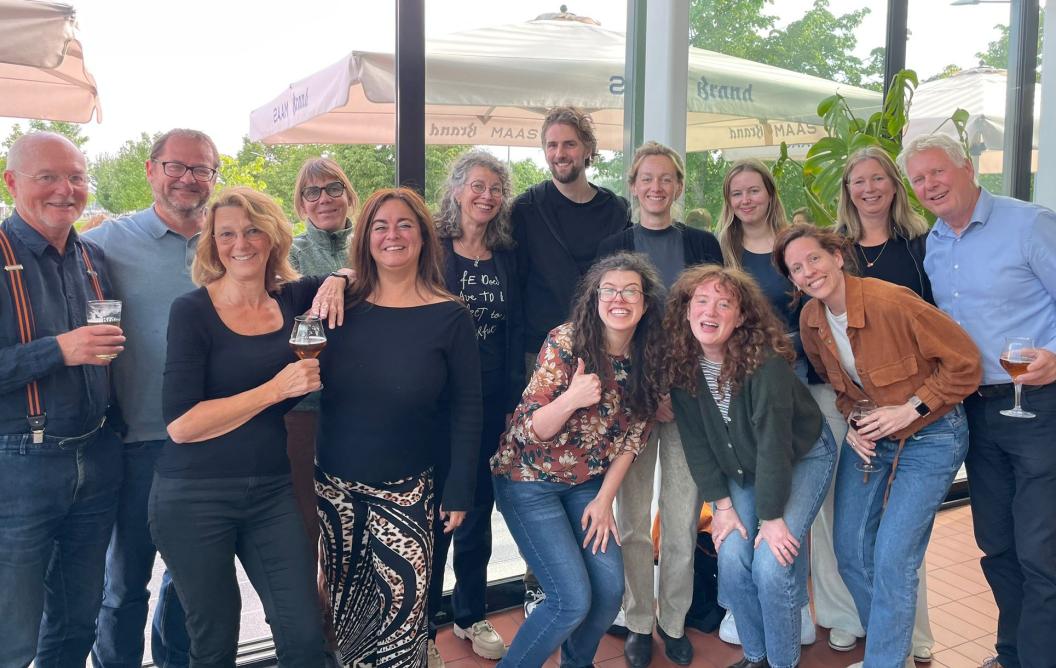CIAO extends cooperation with UWV for four years
The Centre of Expertise for Inclusive Organisations (CIAO), under the banner of the Faculty of Psychology and Neuroscience at Maastricht University, has extended its successful cooperation with the UWV (Uitvoeringsinstituut Werknemersverzekeringen) for four years. We spoke to Gemma van Ruitenbeek and Nicole Maalsté about CIAO and the work they do.
As a knowledge and expertise centre, CIAO has been working for four years with the UWV and other parties within the social domain (including municipalities) to support organisations in ‘organising work differently’. This creates work for people with a distance to the labour market, while simultaneously improving the working situation of current employees.
Work is always moving
‘Work has changed. 50 years ago, work was a lot less complex. There was mostly production work, in which most people could participate. Now 80% of work is service work and more and more is expected of us.’ Van Ruitenbeek also talks about the misconceptions about education level. ‘Yes, our educational level has increased, but this does not necessarily mean that people have become smarter or have more capabilities. It means that more people have had the opportunity to complete an education’.
New developments and new systems mean that more and more work can be ‘done by oneself’. ‘Previously, a lot of work was delegated, think for example of reporting sick leave, holidays, and corrections to these. Now, because of automation, we can do all this ourselves. But that also means the administrative burden on professionals is growing’.
Not leaning, but caring (niet poetsen, maar zorgen)
A good example of CIAO's impact can be found in healthcare. ‘The ZonMw-funded research project not cleaning, but caring arose from the shortage of manpower in the care sector while cleaners had difficulty reintegrating into their own work after illness. We always look at what work is being done by whom. In close consultation with the employees of the department concerned, we then explore whether it can be done differently or better. In healthcare, it turns out that care professionals do a lot of work that does not necessarily require a nursing degree,’ says van Ruitenbeek. ‘Some of the work of care professionals that does not require a nursing qualification could be taken over by reintegrating people from the cleaning sector. I'm talking about making beds, taking care of food, bringing and picking up people, but also having a cup of coffee with patients who need entitlement. Everyone wins in this scenario: the people from cleaning can reintegrate into care work, the nurses can focus on their core tasks and the patients get more personal attention.’
CIAO
This is CIAO
Sustainability in work
‘The cooperation with the UWV focuses not only on (re-)integration, but also on work sustainability’ says van Ruitenbeek. ‘Apart from getting people (back) to work, it is very important to keep people employed in the tight labour market. With the UWV, for instance, we are also looking at people in engineering. Many administrative tasks remain idle because of the number of projects they have to complete, so the workload keeps rising. Those administrative tasks can be performed by someone without a technical background. These people are given the role of technical administrative supporter’. This reduces the workload which increases the chances of sustainable employability.
CIAO trains professionals from the Social Domain, HR and policy officers to look at and analyse, in close cooperation with companies and organisations, how work can be arranged differently. Maalsté says: ‘The UWV provides this service under the name Business Advice Inclusive Organisations to companies free of charge, enabling some people to get back to work and giving others the space to do their actual work properly and feel better at work.’
Cooperations
‘The UWV is also currently working with the Ministry of Social Affairs to look at improvements in childcare. Only pedagogical staff are now allowed to work there, but there is a huge shortage. The ministry asked the UWV how this can be solved. With the tools we developed from CIAO, they can now start working on this’.
Also read
-
Dongning Ren awarded ERC grant for her research proposal on ostracism.
FPN colleague Dr. Dongning Ren was awarded a highly competitive ERC grant for her project: Using a principled causal approach for causal queries: the Ostracism Causal Project.

-

-
Most prestigious European grant to two UM scientists
Two Maastricht University professors are to receive the most prestigious European research grant for individual researchers: an ERC Advanced Grant, worth over €2.5 million. They are Lorenzo Moroni (MERLN) and Alexander Sack (FPN).

